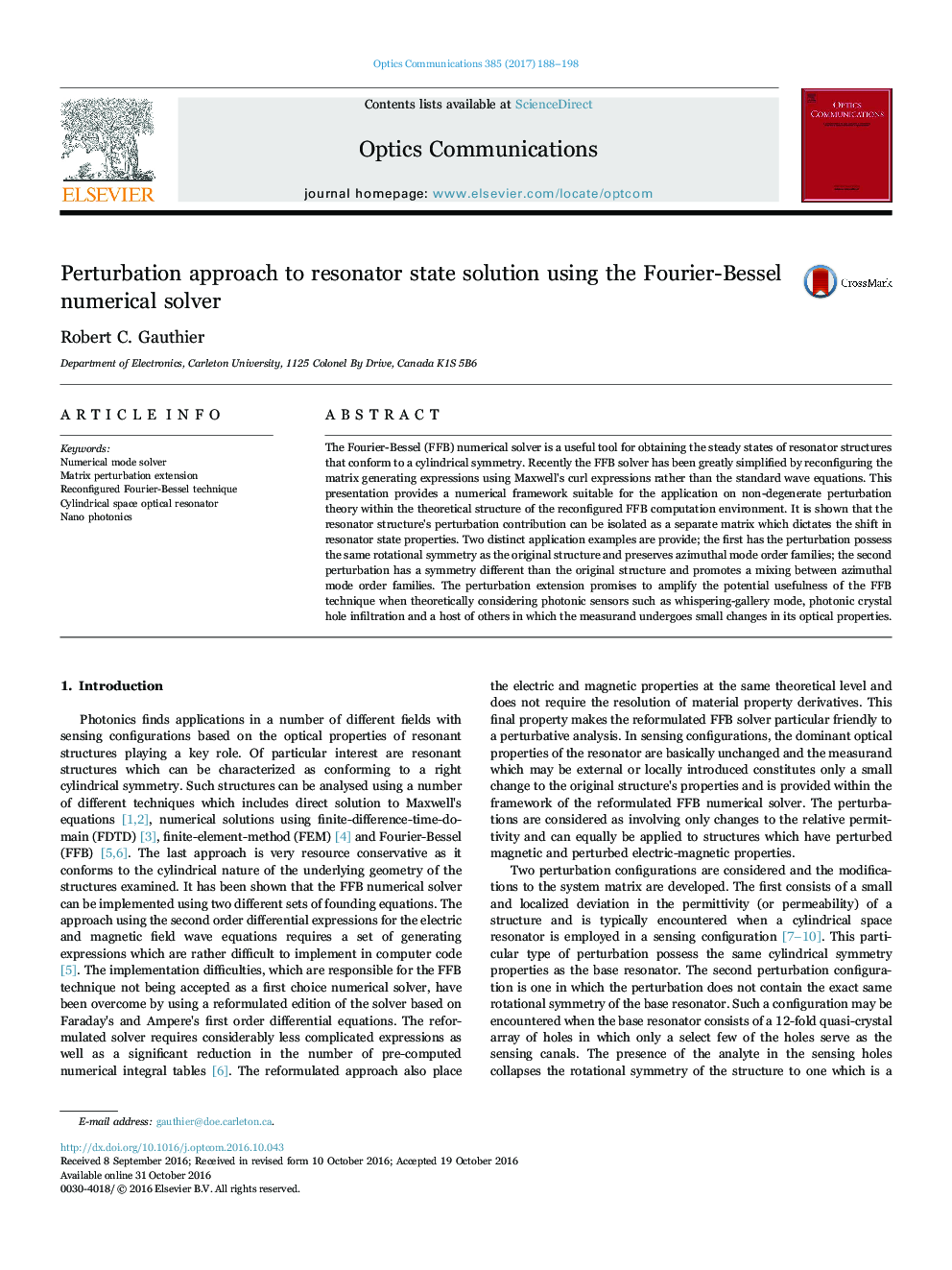| Article ID | Journal | Published Year | Pages | File Type |
|---|---|---|---|---|
| 5449876 | Optics Communications | 2017 | 11 Pages |
Abstract
The Fourier-Bessel (FFB) numerical solver is a useful tool for obtaining the steady states of resonator structures that conform to a cylindrical symmetry. Recently the FFB solver has been greatly simplified by reconfiguring the matrix generating expressions using Maxwell's curl expressions rather than the standard wave equations. This presentation provides a numerical framework suitable for the application on non-degenerate perturbation theory within the theoretical structure of the reconfigured FFB computation environment. It is shown that the resonator structure's perturbation contribution can be isolated as a separate matrix which dictates the shift in resonator state properties. Two distinct application examples are provide; the first has the perturbation possess the same rotational symmetry as the original structure and preserves azimuthal mode order families; the second perturbation has a symmetry different than the original structure and promotes a mixing between azimuthal mode order families. The perturbation extension promises to amplify the potential usefulness of the FFB technique when theoretically considering photonic sensors such as whispering-gallery mode, photonic crystal hole infiltration and a host of others in which the measurand undergoes small changes in its optical properties.
Related Topics
Physical Sciences and Engineering
Materials Science
Electronic, Optical and Magnetic Materials
Authors
Robert C. Gauthier,
